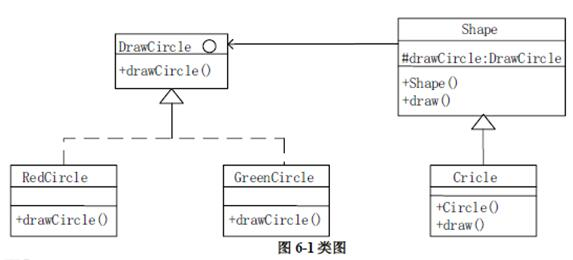有以下程序:includeusing namespace std;int n[][3]={10,20,30,40,50,60};int main()有以下程序: #include<iostream> using namespace std; int n[][3]={10,20,30,40,50,60}; int main() { int (*p)[3]; p=n; cout<<p[0] [0]<<","<<*(p[0]+1)<<","<<(*p) [2]<<end1; return 0; } 上述程序执行
题目
有以下程序: #include<iostream> using namespace std; int n[][3]={10,20,30,40,50,60}; int main() { int (*p)[3]; p=n; cout<<p[0] [0]<<","<<*(p[0]+1)<<","<<(*p) [2]<<end1; return 0; } 上述程序执行后的输出结果是( )。
A.10,20,30
B.20,30,40
C.10,30,50
D.10,40,60
相似考题
更多“有以下程序:#include<iostream>using namespace std;int n[][3]={10,20,30,40,50,60};int main() ”相关问题
-
第1题:
以下程序的输出结果是#include "stdio.h"int *fun(int *a,int *b){ int m; m=*a; m+=*b-3; return(&m);}main(){ int x=21,y=35,*a=&x,*b=&y; int *k; k=fun(a,b); printf("%d\n",*k);}
正确答案:53
本题考查指针函数的使用。题目给出的程序包括两个部分,一个为指针函数fun,一个为主函数main。主函数main部分给出两个整型变量x和y,并给出相应的赋值。main函数的执行结果为输出*k的值,而*k的值即*fun的值。fun函数包括两个整型指针形参*a和*b。通过对*a、*b进行操作,得到结果m,并将m值返回,整个程序的实际输出即为m的值。初始时,m=*a=21。随后令m=m+*b-3,得m=53。整个程序的输出结果即为53。 -
第2题:
以下程序的输出结果是( )。 includevoid swap(int*a,int*B){int*t; t=a;a=b;b=c;} main 以下程序的输出结果是( )。 include<stdio.h> void swap(int*a,int*B){int*t; t=a;a=b;b=c;} main() {int i=3,j=5,*p=&i,*q=&j; swap(p,q);printf("%d %d\n",*p,*q); }
正确答案:3 5
3 5 解析:本题考查函数中形参和实参的传递。在C语言函数中实参和形参传递具有不可逆性,参数只能由实参传向形参,而不能由形参传向实参,虽然swap函数的功能是实现两个数的交换,但由于没有返回值,故最终的输出结果为3 5。 -
第3题:
【填空题】写出下列程序的输出结果。 #include <iostream> using namespace std; int n[][3] ={10, 20, 30, 40, 50, 60}; int main____ { int____[3]; p = n; cout << p[0][0] << "," << *____ <<"," << ____[2] << endl; return 0; }
A -
第4题:
有以下程序:includevoid fun(int* s,int* * d){* *d=*(s+2);}main(){ inta[]={1,2,3, 有以下程序: #include <stdlib.h> void fun(int * s,int * * d) { * *d=*(s+2); } main() { int a[]={1,2,3,4,5},*b; b=(int *)malloc(sizeof(int)); fun(a,&B) ; printf("%d\n",*b+1); } 程序的输出结果是( )
A.2
B.3
C.4
D.5
正确答案:C
-
第5题:
阅读下列说明和C++代码,填写程序中的空(1)~(6),将解答写入答题纸的对应栏内。
【说明】
以下C++代码实现一个简单绘图工具,绘制不同形状以及不同颜色的图形。部分类及其关系如图6-1所示。

【C++代码】
#include?#include?using?namespace?std;class?DrawCircle?{??????//绘制圆形,抽象类? ? ? public: (1);//定义参数为?int?radius,?int?x,?inty? ?virtual~DrawCircle()?{?}};class?RedCircle:public?DrawCircle?{????//绘制红色圆形? ? ? ? public: void?drawCircle(intradius,?int?x,?int?y)?{cout?<?drawCircle?=?drawCircle;? }? ?virtual~shape()?{?}? public:? ?virtual?void?draw()?=?0;};class?Circle:public?Shape?{????//圆形? ? private:? ? ?int?x,y,radius;? ? public:? Circle(int?x,inty,int?radius,DrawCircle?*drawCircle)? (3)? {? this->x?=?x;? ?this->y?=?y;? ? this->radius?=?radius; }? ? ? public:? void?draw(){? drawCircle?-> (4); }};int?main(){Shape?*redCirclenew?Circle(100,100,10,????(5)????);//绘制红色圆形? Shape?*greenCircle=new?Circle(100,100,10, (6)??);//绘制绿色圆形redCircle >draw();? ?greenCircle?->draw();? ?return?0;}答案:解析:(6)(1)void drawCircle (int radius,int x,int y)
(2)DrawCircle*drawCircle
(3)drawcircle
(4)drawCircle(radius,x,y)
(5)new RedCircle()
(6)new GreenCircle()【解析】
第一空是填接口里面的方法,在接口的实现里面找,可以发现应该填void drawCircle (int radius,int x,int y)。
第二空可以根据后面this drawCircle=drawCircle判断,这里应该有一个drawCircle属性,因此应该填)DrawCircle drawCircle。
第三空这里填drawcircle,用-> drawcircle来引用父类的成员。
第四空调用drawCircle(radius,x,y)方法。
第五、六空分别创建一个红色圆形对象和一个绿色圆形对象作为Circle里面的实参。
